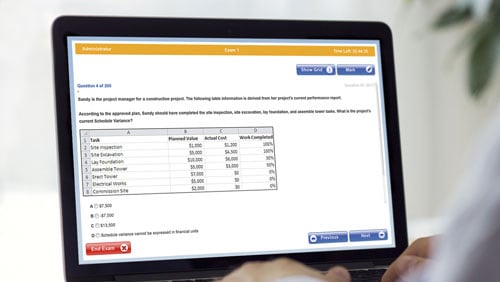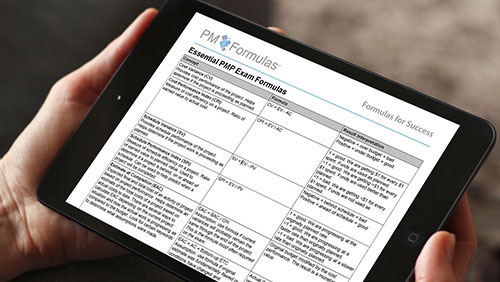How to Identify your PMP® Certification Eligibility
 Do you work in a position where you do a lot of project management work but do not hold the title of Project Manager? Do you have several years of experience performing project management activities as part of a team? If either of these scenarios apply to you then maybe you are also wondering how you can tell if you are eligible to take the Project Management Professional (PMP)® Exam.
Do you work in a position where you do a lot of project management work but do not hold the title of Project Manager? Do you have several years of experience performing project management activities as part of a team? If either of these scenarios apply to you then maybe you are also wondering how you can tell if you are eligible to take the Project Management Professional (PMP)® Exam.
Many people and companies alike see holding the PMP® Certification as a pathway to earning the title of Project Manager. If finding out if you are eligible to take the PMP exam is on your professional to-do list, just follow the simple 4-step approach outlined here to determine if you are in fact eligible to take the PMP Exam.
PMP Requirements
Step 1: Read the PMP Handbook.
Click here to download and read the PMP® Handbook produced by the Project Management Institute (PMI)®.
Pay close attention to the sections that cover eligibility requirements and the application process. It is in the eligibility requirements section that you will find information regarding exam requirements as they relate to educational background, project management experience, and project management specific education in order to qualify to take the PMP® Exam.
In the section covering the application process you will find out how your experience is counted when applying to take the PMP® Exam. The thing to remember about experience is that it should relate to your actual work responsibilities not your job title. So if your job title is something like “Network and Implementation Specialist” don’t get discouraged, PMI is only interested in the project management responsibilities you have had not the title you held.
Step 2: Read the PMP Examination Content Outline.
Click here to download and read the PMP® Examination Content Outline which is also from PMI.
As you review the tasks described within the outline you should recognize many of them as tasks that you normally complete as part of your own work in managing projects. This outline covers what a Project Manager does, which is what would make you eligible to take the PMP® Exam.
Don’t worry if you have not been responsible for 100% of the tasks defined within the outline. It is doubtful anyone ever has. However, you should have been responsible for the majority of the tasks defined in the outline in order to meet the eligibility requirements for the PMP® Exam.
Step 3: Compare.
After working through steps 1 and 2 to gain a clear understanding of the education, experience, and responsibility requirements to qualify for the PMP® Exam grab a copy of your resume and look for areas of overlap. If you are like many people who don’t typically update their resume at the completion of each project, take some time to create a responsibilities list to document everything you were responsible for since your last resume update.
If you have copies of project charters from the projects you have managed and they have a clearly defined responsibilities section they can be very helpful when trying to recall and accurately document responsibility areas and tasks for old projects. Plus you will need all of this information to complete the application for the PMP® Exam anyway so it’s a good idea to gather this already.
Then ask yourself these questions:
- Do I meet the eligibility requirements from step 1?
- Does my resume, or my responsibilities list, reflect the majority of the tasks from step 2?
- Can I honestly say to myself ‘Yes. I meet these criteria’?
If your answer is “Yes” to all three, then you are most likely eligible.
Step 4: Contact PMI Customer Care.
If you have any doubts concerning your eligibility then contact PMI’s customer care department at This email address is being protected from spambots. You need JavaScript enabled to view it.. They have helpful staff who are happy to answer your questions.
Conclusion
Following the simple 4-step approach outlined here will allow you to determine for yourself if you are eligible to take the PMP® Exam. Plus all of the information you have gathered such as education, experience hours, and areas of responsibilities will all be very valuable when you start the application process.
Another excellent resource to learn about PMP® Exam eligibility is the YouTube video How to prepare for your PMP Exam Step 1: Assess Your Eligibility. It discusses the project management experience hours required depending on your educational background, and the project management training hours required to be eligible to take the PMP® Exam. It also clarifies the difference between project management experience hours and project management training hours and explains the number 1 reason why you should become a PMI member before applying for the PMP Exam.
Watch the YouTube video here:


